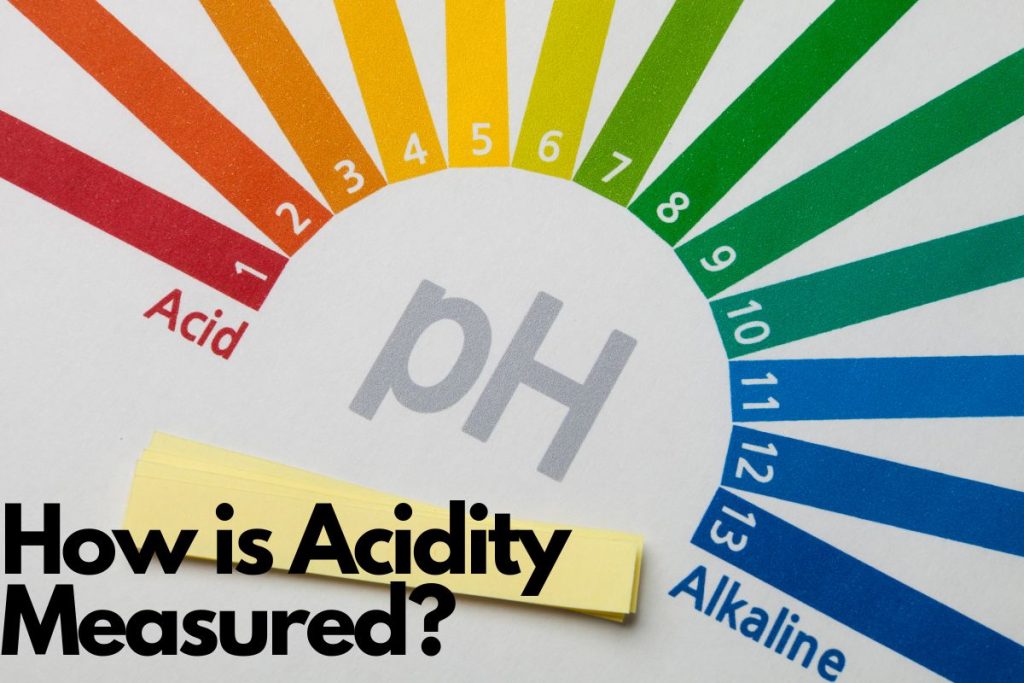Mango stands out as a particularly beloved fruit. Known as the “king of fruits,” mangoes are celebrated for their vibrant color, juicy texture, and a flavor profile that perfectly balances sweetness with a hint of tartness. But is it acidic?
The short answer is: Yes, Mango is slightly acidic, with its acidity levels influenced by many factors. Generally, mangoes have a pH level just below 7, indicating mild acidity.
However, the answer might seem simple, but it is somewhat complex.
To fully understand the acidity of mangoes, we need to dive deeper into the concept of acidity, especially in the context of fruits.
What is Acidity?

In the simplest terms, acidity refers to the presence of acid in a substance.
In the context of food and nutrition, acidity is a crucial aspect as it influences taste, preservation, and even digestion.
Foods with high acidity often have a tart or sour taste, which can be desirable in many culinary applications.
But what does it mean when we ask, “is mango acidic?”
To answer this, we need to understand how acidity is measured.
How is Acidity Measured?

Acidity is typically quantified using the pH scale, a measure that ranges from 0 to 14.
On this scale, a pH less than 7 indicates an acidic substance, while a pH greater than 7 signifies an alkaline or basic substance.
A pH of 7 is considered neutral, neither acidic nor alkaline.
When we question, “is mango acidic?” we’re essentially asking where mangoes fall on the pH scale.
However, the pH of a mango can vary depending on several factors, which we’ll explore in the next section.
Factors Influencing The Acidity of Mangoes
It’s important to note that the acidity of a mango isn’t a fixed value. Instead, it can be influenced by several factors.
Variety:
Firstly, the variety of the mango can play a significant role.
There are hundreds of mango varieties worldwide, each with its unique flavor profile.
Some varieties are sweeter, while others are more tart, which can influence their acidity.
Ripeness:
Secondly, the ripeness of the mango affects its acidity.
As a mango ripens, its acidity decreases while its sweetness increases.
Therefore, a ripe mango will generally be less acidic than an unripe one.
Storage & Preparation:
Lastly, how the mango has been stored and prepared can also impact its acidity.
For instance, mangoes that have been pickled or canned might have added acidic ingredients, increasing their overall acidity.
Is Mango Acidic?
Given these factors, the question “is mango acidic?” doesn’t have a one-size-fits-all answer.
Generally, mango is slightly acidic, with a pH falling just below 7. However, this can vary based on the factors mentioned above.
Is Mango Juice Acidic?
Yes, mango juice is acidic. The pH of mango juice typically ranges from 3.40 to 4.08, depending on the variety and ripeness of the mangoes used.
A pH below 7 is considered acidic.
However, it’s less acidic compared to some other fruit juices like orange juice or pineapple juice.
Does Mango Have Citric Acid?
Yes, mango contains citric acid, although the amount can vary depending on the variety and ripeness of the fruit.
Citric acid is a natural acid that is found in many fruits and vegetables, especially citrus fruits like lemons and oranges.
In mangoes, it contributes to the fruit’s overall flavor profile, giving it a slight tartness that complements its sweetness.
It’s important to note that while citric acid is a weak acid, it doesn’t necessarily mean that eating mangoes will lead to acid reflux or other digestive issues.
Is Mango Alkaline?
Mango tend to be more acidic than alkaline. Mango is slightly acidic, not alkaline.
The pH of a food determines whether it is acidic or alkaline.
The pH scale ranges from 0 to 14, with 7 being neutral. Foods with a pH less than 7 are considered acidic, while those with a pH greater than 7 are considered alkaline.
In the context of the alkaline diet, which categorizes foods as either acid-forming or alkaline-forming in the body after digestion.
However, the alkaline diet’s impact on health is a topic of ongoing research and debate.
It’s always best to consult with a healthcare provider or a registered dietitian for personalized dietary advice.
In the next section, we’ll explore the health implications of eating mangoes, considering their acidity.
Benefits of Eating Mangoes
Despite the slight acidity, mangoes are packed with nutritional benefits that make them a healthy addition to your diet.
They are rich in vitamins, particularly vitamin C, which is an antioxidant that helps protect your body from damage by free radicals.
Mangoes are also a good source of fiber, promoting digestive health.
Moreover, the natural sugars in mangoes provide a healthier alternative to refined sugar, making them a great choice for satisfying a sweet craving.
The energy from these natural sugars, combined with the mango’s fiber content, provides a slow and steady energy release, unlike the energy spike and crash associated with refined sugar.
Can Mangoes Cause Acid Reflux?
Given their slight acidity, you might wonder if eating mangoes can cause acid reflux or exacerbate its symptoms.
Generally, mangoes are not considered a common trigger for acid reflux. However, everyone’s body reacts differently to different foods.
If you notice that eating mangoes worsens your acid reflux symptoms, it might be best to avoid them.
Is Mango Good For Acid Reflux?
Mangoes are generally considered safe to eat if you have acid reflux. They are a low-acid fruit, which means they are less likely to trigger acid reflux symptoms compared to high-acid fruits like oranges or pineapples.
However, its impact on acid reflux can vary from person to person. Here are some points to consider:
Factors that May Contribute to Acid Reflux:
- Natural Acidity: Mangoes contain natural acids, which could potentially trigger acid reflux in some people.
- Sugar Content: The high sugar content in mangoes might exacerbate acid reflux symptoms for some individuals.
- Individual Sensitivity: Some people may be more sensitive to certain fruits, including mangoes, which could trigger or worsen their acid reflux symptoms.
Factors that May Help with Acid Reflux:
- Fiber Content: Mangoes are a good source of dietary fiber, which can help improve digestion and may reduce symptoms of acid reflux for some people.
- Alkaline Nature: Some believe that the alkaline nature of mangoes could help neutralize stomach acid, although scientific evidence for this is limited.
- Moderation: Consuming mangoes in moderation, and as part of a balanced diet, may minimize the risk of triggering acid reflux.
Recommendations:
- Consult a Doctor: If you have chronic or severe acid reflux, it’s best to consult a healthcare provider for personalized advice.
- Trial and Error: You could try consuming a small amount of mango and observe how your body reacts to determine if it triggers your acid reflux.
- Dietary Changes: If you find that mangoes do trigger your acid reflux, you may need to avoid them and opt for fruits that are less acidic.
- Timing: Eating mangoes well before bedtime can also help, as lying down immediately after eating can exacerbate acid reflux symptoms.
It’s important to note that while some people may find relief from acid reflux by avoiding acidic or sugary foods, others may not experience the same triggers.
Always consult with a healthcare provider for a diagnosis and treatment plan tailored to your needs.
Final Thoughts:
As we’ve discovered, while mango is slightly acidic, this acidity can vary based on the mango’s variety, ripeness, and how it’s been stored and prepared.
Despite their slight acidity, mangoes offer a wealth of nutritional benefits, making them a valuable addition to a balanced diet.
They’re rich in vitamins, particularly vitamin C, and provide a good source of dietary fiber.
While they’re not commonly associated with triggering acid reflux, it’s important to listen to your body and observe how it reacts to different foods.
